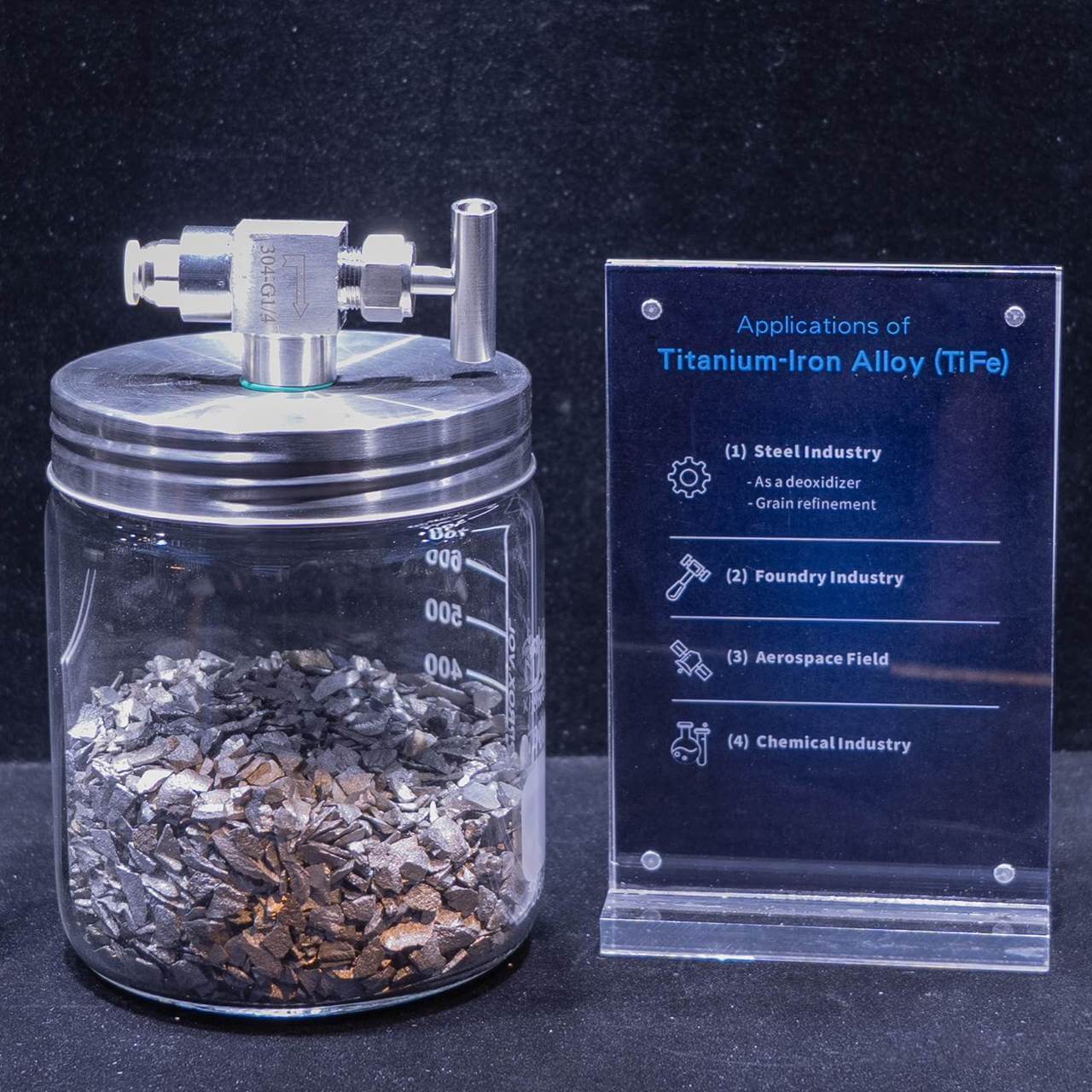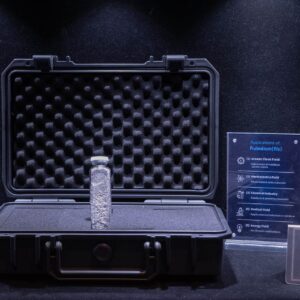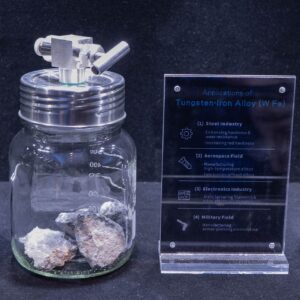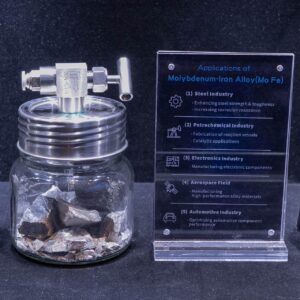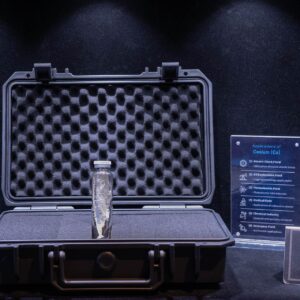Definition
Titanium-iron alloy is a type of ferroalloy primarily composed of titanium (Ti) and iron (Fe). The titanium content typically ranges between 15% and 75%, with trace amounts of impurities such as carbon (C), silicon (Si), manganese (Mn), phosphorus (P), and sulfur (S).
Physical Properties
- The alloy usually appears as a silver-gray metallic block or granular material with a relatively high density, ranging from 6.0 to 7.0 g/cm³, depending on the titanium content.
- It has a high melting point, around 1660°C, which allows it to maintain excellent physical stability under high-temperature conditions.
Chemical Properties
- Titanium-iron alloy exhibits outstanding chemical stability. At room temperature, it resists corrosion from most acids, alkalis, and salt solutions. However, under specific conditions such as high temperatures or exposure to strong oxidizing acids (e.g., concentrated sulfuric acid or nitric acid), chemical reactions may occur.
- Due to the presence of titanium, the alloy possesses a certain degree of oxidation resistance in air. Titanium forms a dense oxide layer (primarily TiO₂) on the surface, preventing further oxidation of the iron and other elements within the alloy, thereby enhancing its corrosion resistance.
Application Scenarios
Steel Industry
As a DeoxidizerIn steelmaking, titanium-iron alloy is used for deoxidation. Oxygen dissolved in molten steel can adversely affect the quality of the steel, leading to issues such as porosity and reduced toughness. Titanium has a strong affinity for oxygen, allowing it to remove oxygen from the molten steel through the reaction Ti + O₂ = TiO₂. The resulting TiO₂ and other oxides float to the surface of the molten steel and can be removed.
Grain Refinement
Titanium-iron alloy can also refine the grain structure of steel. Titanium forms fine particles such as carbides and nitrides (e.g., TiC, TiN), which are distributed throughout the steel matrix. These particles inhibit grain growth during heating and cooling processes. Refined grains significantly improve the strength, toughness, and plasticity of the steel. For example, in the production of high-strength alloy steels, adding an appropriate amount of titanium-iron alloy can increase the yield strength by 30%-50% while also improving impact toughness.
Casting Industry
- In casting processes, titanium-iron alloy is used to improve the quality of castings. It reduces shrinkage cavities and porosity in castings. This is because titanium alters the solidification behavior of the molten iron, leading to more uniform solidification and reducing defects caused by uneven shrinkage.
- Additionally, titanium-iron alloy enhances the wear resistance and corrosion resistance of castings. For castings operating in harsh environments, such as pump bodies and valves in seawater or corrosive media, the service life can be extended by 2-3 times with the addition of titanium-iron alloy.
Aerospace Industry
- Titanium in titanium-iron alloy has a high strength-to-weight ratio. In the aerospace industry, titanium-iron alloy is used as a base material for manufacturing components with extremely high-performance requirements, such as engine blades and landing gear. Engine blades operate under high temperatures, high pressures, and high-speed rotation, requiring materials with excellent high-temperature strength, fatigue resistance, and oxidation resistance. Through appropriate heat treatment and alloy design, titanium-iron alloy can meet these requirements, ensuring reliable performance under extreme conditions.
- Furthermore, titanium-iron alloy is used in structural components such as spacecraft shells. Its relatively low density helps reduce the weight of the spacecraft while maintaining structural strength, thereby improving payload capacity and flight performance.
Chemical Industry
- Titanium-iron alloy is used in the manufacture of chemical equipment such as reactors, heat exchangers, and pipelines. In chemical production processes, this equipment often meets various corrosive substances, including acids, alkalis, and salt solutions. The corrosion resistance of titanium-iron alloy ensures long-term performance and reduces the need for maintenance and replacement.
- For example, in the chlor-alkali industry, certain components of electrolytic cells used to produce chlorine and caustic soda are made from titanium-iron alloy. During the electrolysis process, the anode generates highly oxidizing chlorine gas, and titanium-iron alloy can resist chlorine corrosion, ensuring the normal operation of the electrolytic cells.

